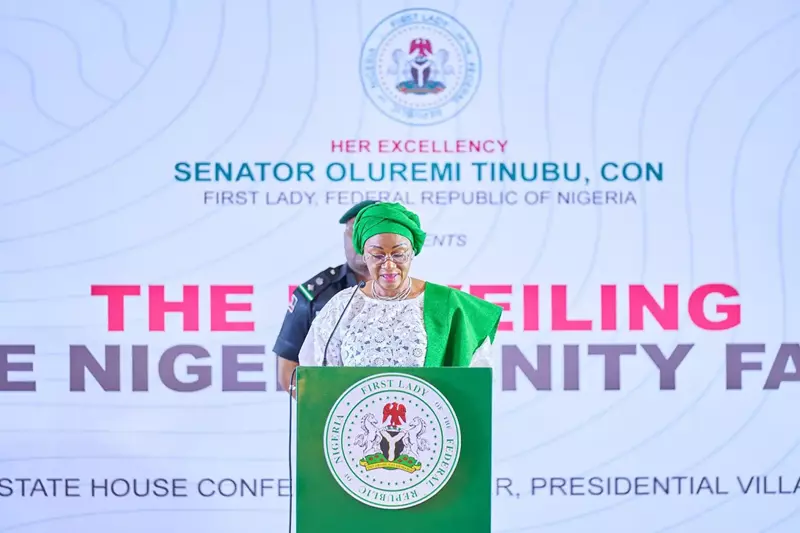 The unveiling of a National Unity Fabric by the First Lady, Senator Oluremi Tinubu, on Monday, has continued to generate controversy.
The unveiling of a National Unity Fabric by the First Lady, Senator Oluremi Tinubu, on Monday, has continued to generate controversy.
With the prevailing socio-economic challenges confronting the country, many felt that choosing a national uniform to be worn across the country for the October 1, Independence Day celebration was the least that could have occupied her thought at the moment.
The Head, Human Rights Writers Association of Nigeria (HURIWA) and former National Commissioner, National Human Rights Commission of Nigeria, Emmanuel Onwubiko, was of the opinion that Nigeria’s unity or attainment of collective feeling of unity cannot be achieved through the wearing of national uniform.
This is as civil rights activist and Executive Director, Civil Society Legislative Advocacy Centre (CISLAC), Auwal Musa Rafsanjani, while in support of efforts at genuinely uniting Nigerians and creating atmosphere for love, justice and fairness, said the President’s wife should look into key issues that created divisions among Nigerians.
“These are the things she needs to do to ensure that leaders restore hope and confidence of Nigerians to unite and stop thinking about ethnic or religious divisions which were consequences of loss of confidence in the leadership of our country at local, state and national levels.
So, as long as these underlying issues continue to penetrate in the governance architecture of our country, many Nigerians will not have peace in a symbolic or in a united Nigeria because of the passive division that some people have created.”
Rafsanjani decried that some people hide under ethnic or religious guise polarize the country due to poor governance, corruption, lack of development and social justice.
“So, we need to go beyond public show and work towards ensuring that there is social justice and also, address the issue of poverty and policies that promote poverty and underdevelopment in Nigeria”, he added.
But a Gender and Social Inclusion Expert, Sussan K. Ihuoma, held that while the initiative, particularly at a time of economic hardship, raises significant questions about its appropriateness, the effort to foster national unity and pride by using cultural symbols to bring people together on important national days should be applauded rather than attract condemnation.
On the other hand, however, she stressed that while unity is important, addressing food insecurity, access to healthcare and creating economic policies that uplift the poor would be more aligned with the expectations of a “mother” figure who prioritizes the survival and well-being of her children.
“A more effective approach might be one where national unity is framed around improving the welfare of all Nigerians, starting with addressing hunger and poverty”, she stated.



![[FILES] A picture shows the Argentinian flag. (Photo by DANIEL LEAL-OLIVAS / AFP)](https://cdn.guardian.ng/wp-content/uploads/2020/11/Argentina-.jpg)


